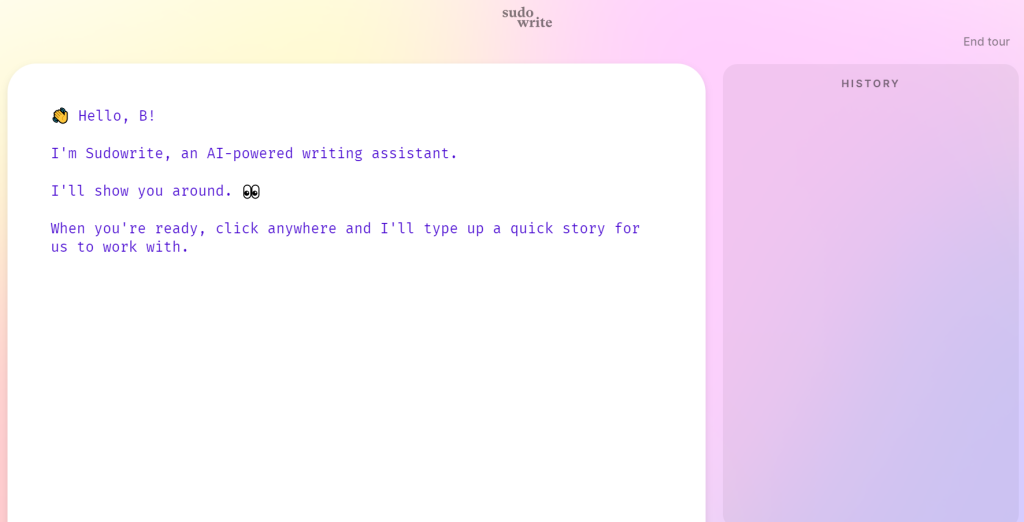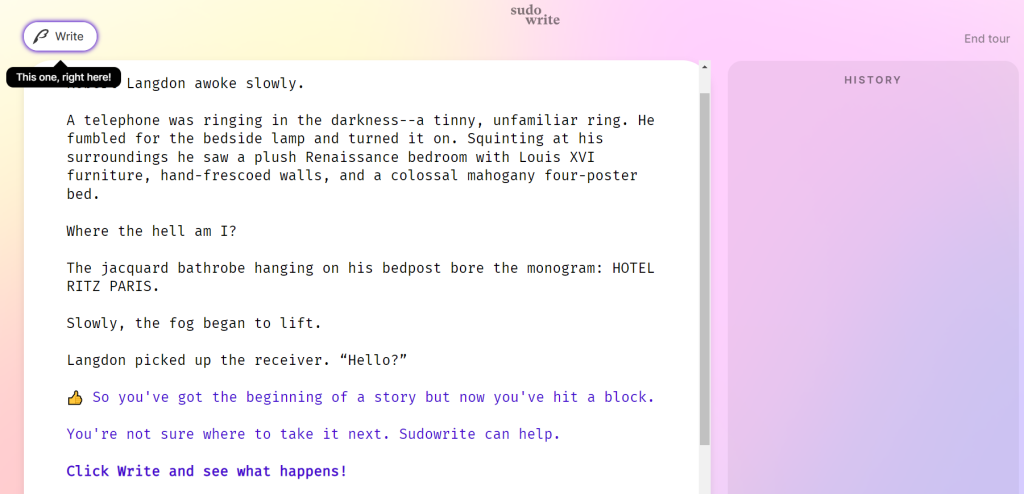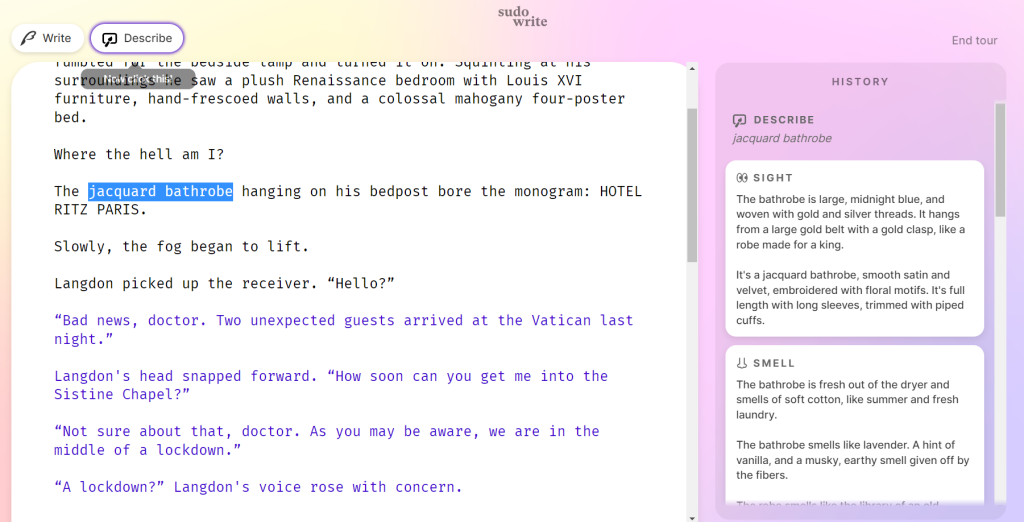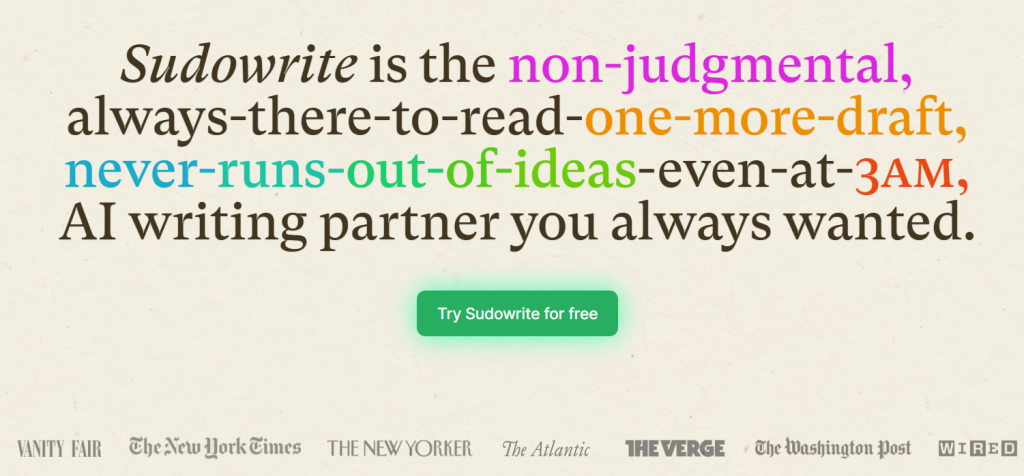
How this founder wants to kill writer’s block forever with AI
James learned how language models could ignite hidden meanings
Hey James, I discovered Sudowrite a couple of weeks ago and I wanted to reach out as I interview GenAI founders and creators. It seems that you are doing a lot of cool things, you are a creative builder and you even do some angel investing, I got a lot of questions but I’ll try to keep it short and to the point. 😉 Can you tell us who you are and how you ended up doing AI-generated art?
James: I’m James! 👋 I’m an engineer, founder, and writer. I love building tools. I took a 2 year sabbatical from tech where I focused on writing fiction, then got sucked back in when I started using GPT-3 in my craft. I instantly knew that there was an opportunity to build a product to help writers be more creative.
You created Sudowrite, a tool for writers leveraging AI to overcome the famous writer’s block. How did you come up with this idea in the first place ?
I was writing a short story (which I was struggling to finish) and using GPT-3 to generate some ideas. During the course of that evening, it suggested a new ending for the story that recontextualized the theme for me, and made the story stronger. It gave me the direction I needed to rework the story. Through this process, it showed me that LLMs were capable of igniting hidden meanings and intentions in my work. They could be a partner! (the story is here).
How is the product doing so far and is ChatGPT a serious threat or are you gonna implement it as soon as they release an API for it? (Like a GPT3.5 or so maybe).
ChatGPT has actually brought a lot more awareness for us, and we’ve seen our audience grow as a result. Sudowrite is doing great! Relevant thread from my co-founder:
I saw on your website that this is not the first product you shipped, when you created Parse few years ago, did you already use some AI models at that time ?
That was around 2011. At the time, there wasn’t that much new innovation in AI, so that wasn’t the core of what we were doing. Instead, we were creating an API that would help mobile developers be as proficient at creating scalable backends as they were at client side programming.
In this series, we meet interesting founders and creators from the AI scene and discuss with them not only their take on this new era of technology, but maybe learn a few secret tricks from them. If you’d like to share your story and tips, you can get in touch with us here.
You can code apps and you can write fiction novels, which is not a so common combination of skillset. How in your opinion those 2 skills can combine or influence each others ?
They are very different! Code is a transitionary form: your end user is not reading your code line-by-line, whereas for fiction, your readers are. In that way, writing is more akin to the business, product design, and UX than it is to code.
There are similarities: both require deep work and the ability to hold large amounts of state in your head (and a lot of discipline to refine and rework). For fiction though, there is one HUGE difference: there are no humans in code. There is no parallel to creating convincing characters in coding, which is the reason many folks who come from technical fields end up with character development as their weakness (me included). That was by far the hardest skill for me to learn through those 2 years.



What do you think is the next big thing that gonna happen in the next couple of weeks/months, ai-tech related?
I don’t like to make predictions since I don’t think most people (even those working deep in the field) have enough signal to make good ones. If I were forced to make a prediction, I would say this is the year that LLMs enter the mainstream, as in, the average knowledge worker will start using these tools on a daily basis.
With your experience using the tools, you probably discovered a couple of tips and tricks. Which ones would you be ok to share with our audience?
Funny enough, I’ve been mostly heads down on Sudowrite so it’s been hard to keep up with all the new tools! One trick I use with GPT-3 is “hallucinated functions” – you can read more about that here:
Are you more into: Midjourney, DALL-E 2 or Stable Diffusion? And why?
I actually haven’t used these tools extensively recently, so my knowledge is outdated. I think Midjourney’s focus on very opinionated styles is an interesting approach, and I’ve liked the stuff I’ve seen people produce. That being said, we use DALL-E at Sudowrite, which I’ve found to strike a more neutral tone.
Where can people find put more about you ?
You can find more info at jamesyu.org – and of course, give Sudowrite a spin at sudowrite.com and let me know what you think!
Subscribe to our newsletter!



Post a comment